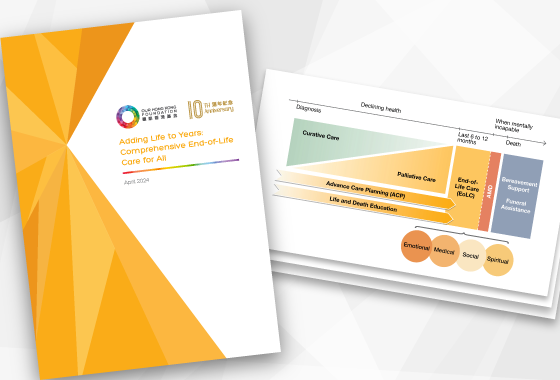Hong Kong coronavirus third wave: health literacy needed to boost immunity to misinformation
This article appeared originally in the South China Morning Post on 31 July, 2020.
Authors: Queenie Li, researcher, and Maira Qamar, researcher at Our Hong Kong Foundation
Hong Kong coronavirus third wave: health literacy needed to boost immunity to misinformation.

Empowering Hongkongers to critically assess health information would close the dangerous gap between expert advice and individual behaviour.
As the city braced itself for a third wave of Covid-19 cases, health experts urged the government to roll out draconian measures. Not surprisingly, there has been a landslide of misinformation with the potential to undermine public health efforts. We urgently need not only new vaccines, but also an immunity to health misinformation.
In Hong Kong, the Centre for Health Protection has been adopting clear language in disseminating health information to better engage the general public through social media channels. Yet, health literacy is much more than sending and receiving correct health information, as observed in the great gap between expert advice and public behaviour.
If the population is equipped with sufficient health literacy, individuals can make informed decisions after analysing information. Health literacy aims to empower, pushing one to spring from knowledge into action.
Notably, health literacy plays an equally important role in the prevention of non-communicable diseases such as diabetes. Individuals are empowered to seek care ahead of time through appropriate avenues, avoiding any misuse of scarce health resources, such as emergency care for minor ailments which substantially drives up health care costs.
There are ample means to promote health literacy, such as reviewing school curricula, enhancing academic research and imposing a tax on unhealthy products. In Hong Kong, however, such campaigns are scattered and have lacklustre impacts. More efforts are needed to form close-knit primary care communities, potentially through uplifting the roles of district health centres and community clinics, from which people could seek help and clarification on all health-related topics.
We must also address the lack of locally available data on the prevalence of health literacy in Hong Kong. Following the European Health Literacy Survey, which has been used in mainland China and Taiwan, we can bridge this data gap by conducting population-based surveys to map limited health literacy “hotspots” and prioritise interventions and resources for communities and individuals with the most need.
Knee-jerk responses should not be our only response to crises. With enhanced health literacy as the foundation, citizens can comprehend and respond to all health policies meaningfully, taking a more proactive – rather than a reactive approach – to our health. When governments raise awareness and invest in preventive care, everyone can benefit from the health-related outcomes and costs saved in the long run.



